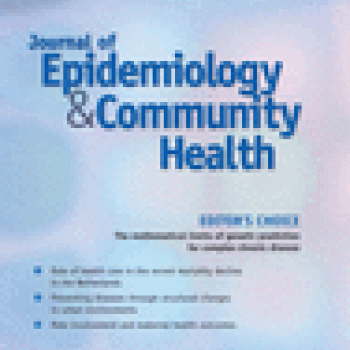Publication Information

Extend analyses of maternal mental health and infant growth in low- and middle-income countries (LMICs) to children through age eight years, and broaden analyses to cognitive and psychosocial outcomes.
DesignCommunity-based longitudinal cohort study in Ethiopia, India, Peru and Vietnam. Surveys and anthropometric assessments were carried out when the children were approximately ages 1, 5 and 8 years. Risk of maternal common mental disorders (rCMDs) was assessed with the Self-Reporting Questionnaire (SRQ)-20 (score ≥8).
Main outcome measuresChild stunting and underweight (Z score ≤2 of height and weight for age), and <20th centile for: cognitive development (Peabody Picture Vocabulary Test), and the psychosocial outcomes self pride and life satisfaction.
ResultsA high rate of rCMD, stunting and underweight was seen in the cohorts. After adjusting for confounders, significant associations were found between maternal rCMDs and growth variables in the first year of life, with persistence to age 8 years in India and Vietnam, but not in the other countries. India and Vietnam also showed significant associations between rCMDs and lower cognitive development. After adjustment, rCMD was associated with low life satisfaction in Ethiopia but not in the other cohorts.
ConclusionsAssociations of maternal rCMD in the first year of life with child outcomes varied across the study cohorts and, in some cases, persisted across the first 8 years of life of the child, and included growth, cognitive development and psychosocial domains.
Download Maternal mental health, and child growth and development, in four low-income and middle-income countries, Bennett M, Schott W, Krutikova S, Behrman JR, Journal of Epidemiology and Community Health 2016;70:168-173.
Extend analyses of maternal mental health and infant growth in low- and middle-income countries (LMICs) to children through age eight years, and broaden analyses to cognitive and psychosocial outcomes.
DesignCommunity-based longitudinal cohort study in Ethiopia, India, Peru and Vietnam. Surveys and anthropometric assessments were carried out when the children were approximately ages 1, 5 and 8 years. Risk of maternal common mental disorders (rCMDs) was assessed with the Self-Reporting Questionnaire (SRQ)-20 (score ≥8).
Main outcome measuresChild stunting and underweight (Z score ≤2 of height and weight for age), and <20th centile for: cognitive development (Peabody Picture Vocabulary Test), and the psychosocial outcomes self pride and life satisfaction.
ResultsA high rate of rCMD, stunting and underweight was seen in the cohorts. After adjusting for confounders, significant associations were found between maternal rCMDs and growth variables in the first year of life, with persistence to age 8 years in India and Vietnam, but not in the other countries. India and Vietnam also showed significant associations between rCMDs and lower cognitive development. After adjustment, rCMD was associated with low life satisfaction in Ethiopia but not in the other cohorts.
ConclusionsAssociations of maternal rCMD in the first year of life with child outcomes varied across the study cohorts and, in some cases, persisted across the first 8 years of life of the child, and included growth, cognitive development and psychosocial domains.
Download Maternal mental health, and child growth and development, in four low-income and middle-income countries, Bennett M, Schott W, Krutikova S, Behrman JR, Journal of Epidemiology and Community Health 2016;70:168-173.
